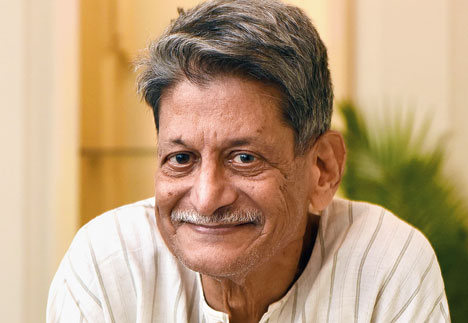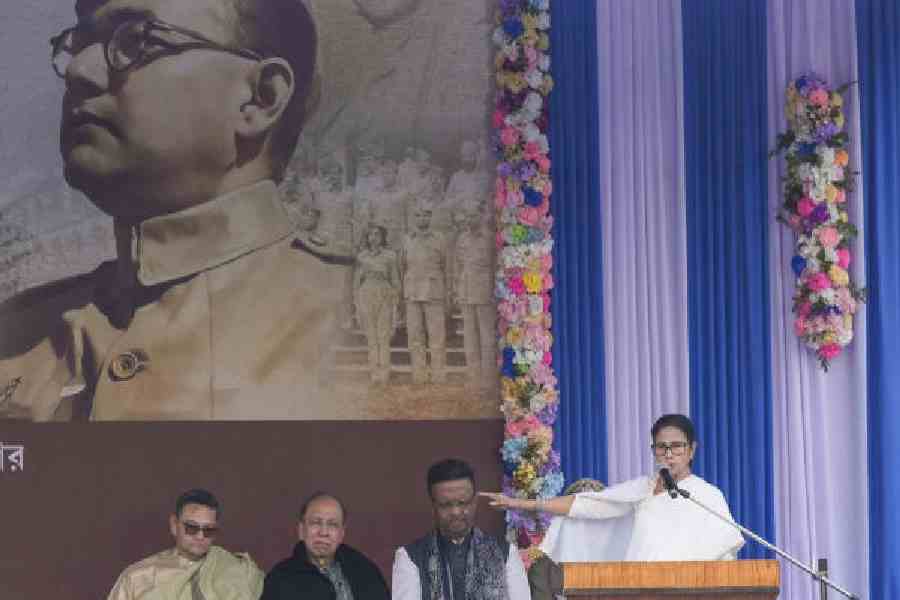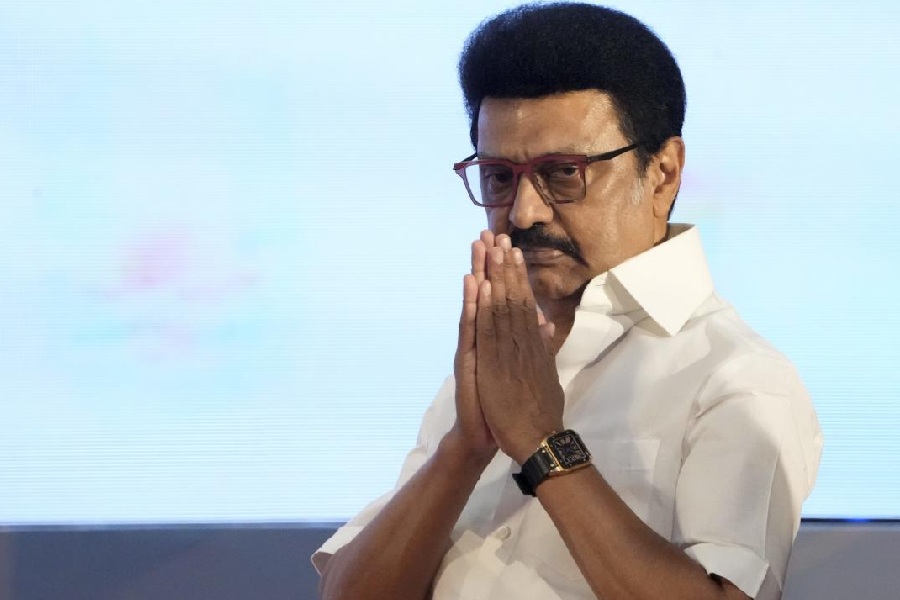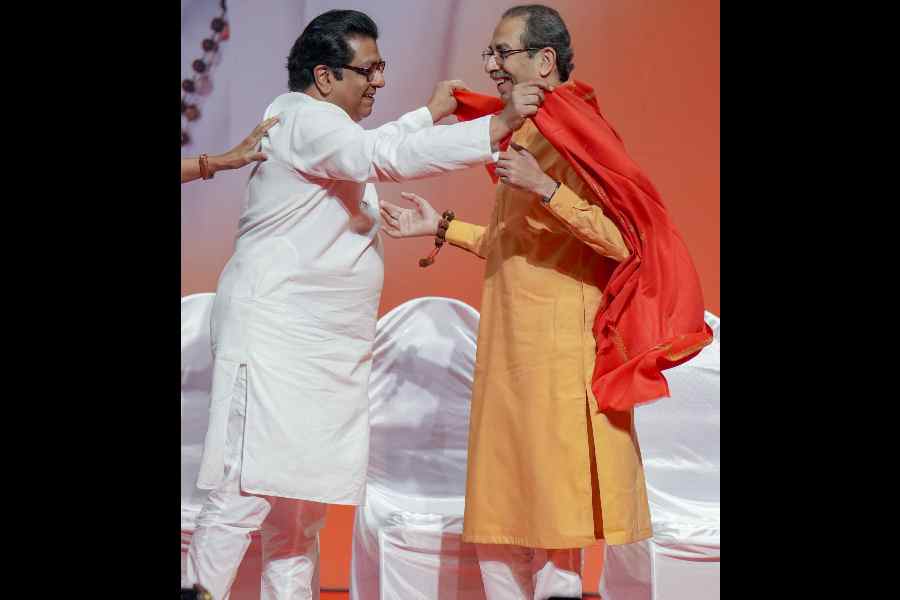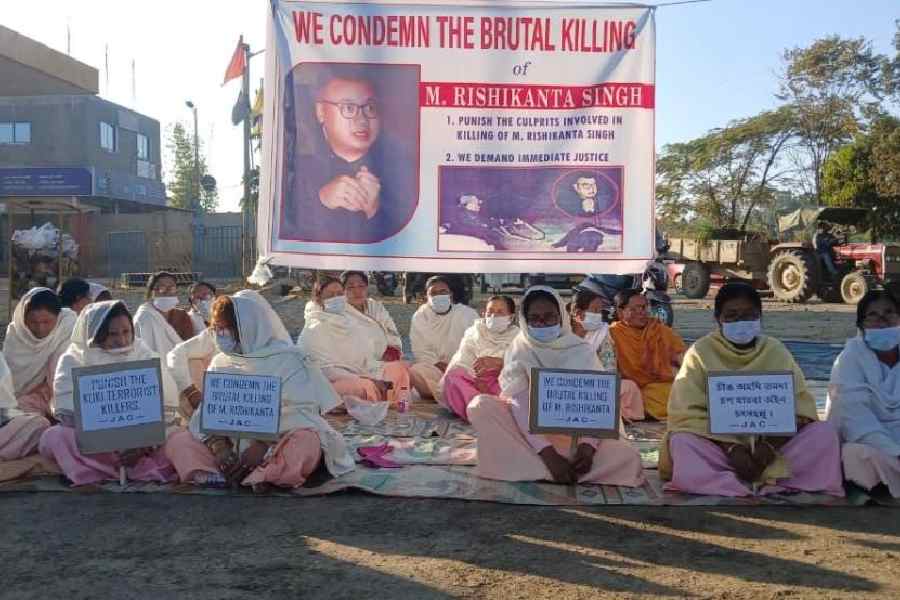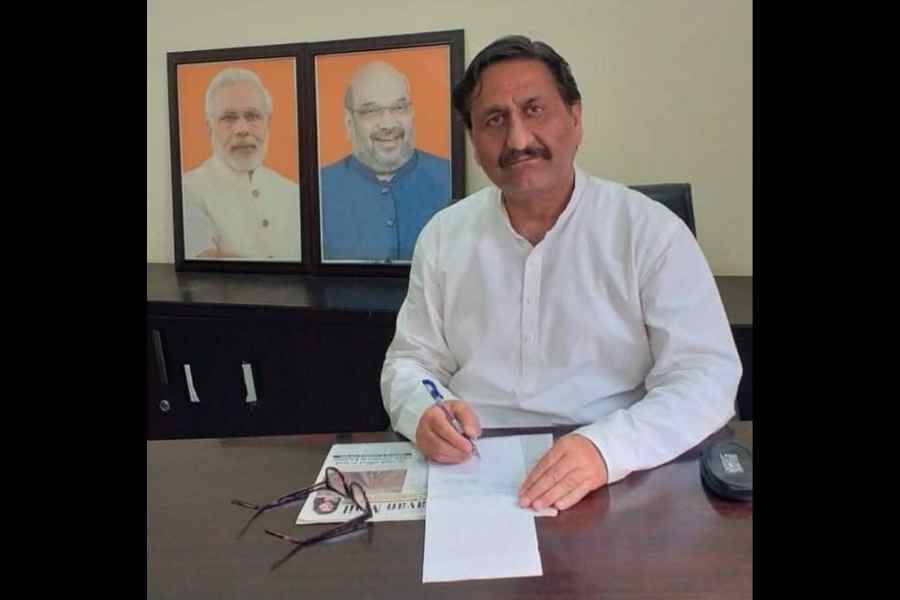
Alipore: Kiran Nagarkar is a man of few words. Nudge him about the current political order or the climate of intolerance, and you see a visibly distressed man, holding his head in his hands.
Not one to mince words about the attempts to silence authors, threaten them into obeisance and throttle all forms of dissent, Nagarkar spoke about censorship at the Tata Steel Kolkata Literary Meet, co-organised by Victoria Memorial Hall in association with The Telegraph.
But what irks him the most is the poor standard of literary criticism in the country. “The reviewers skewered me over God’s Little Soldier saying
I was sympathetic to terrorism. They didn’t realise it was not a book on terrorism but extremism. People turn to extremism in trying circumstances. After the Spanish Civil War, people abandoned Marxism and turned to extreme right-ism. The book flopped here but was received rather well in the west. Another reviewer had the gall to write about my trilogy Ravan and Eddie without actually reading them,” he said.
Perhaps, this is what has turned Nagarkar into a sporadic writer. He stopped writing after he published his first book Saat Sakkam Trechalis (Seven Sixes are Forty-Three) in 1974. Written in Marathi, it is a bitter description of a Bombay-ite, written in an innovative style. But the book didn’t give him much recognition. “I was at (poet) Dilip Chitre’s house, when I was asked to edit a Marathi magazine brought out by his father. I came back and wrote Saat Sakkam Trechalis. Those days the urban intelligentsia didn’t think much if you wrote in Marathi. I remember the daughter of my partner, who was just three at the time, had said ‘why is this man who speaks Marathi coming through the front door of our house and not the back door?’ She was just a child but that was the attitude towards regional language. I wonder why we cannot nurture the 24 languages we have and that give us such a treasure trove of literature,” he said.
Nagarkar’s next book, Ravan and Eddie, was in English and took another 20 years to come.
In his latest work Jasoda, Nagarkar writes about the most down-trodden, women and Dalits, and his eponymous protagonist here is a woman from Paar, a village beyond the backyard.
“Jasoda is very different from my other works. It is rather dark. The book opens with a prologue. Jasoda is having a baby in a field. The village is in the midst of a drought. After the baby is delivered, Jasoda has one look at her and kills her,” the author said.
This isn’t so much a condemnation of Jasoda as a telling commentary of her circumstances. “She is utterly poor, we have no idea of the depth of poverty that villagers in the remotest corners face. How is it that in India women kill their own daughters? Women, I find, are the worst enemies of themselves. But what we don’t realise is it is the men who drive them to it,” the author said.
Born into a Brahmo Samaj family, Nagarkar’s parents “would have loved to have daughters”. Nagarkar says his name Kiran was more of a girl’s name. “My elder brother was named Jyoti, again a girl’s name,” he laughed. “They doted on my aunt’s daughters,” he said. This predilection with daughters might well explain Nagarkar’s empathetic writing of Jasoda.
Nagarkar’s protagonists range from Jasoda to extremist Zia to two chawl boys-cum-music composers, Eddie and Ravan, to the unknown spouse of a famous princess. His most popular work, Cuckold, that earned him the Sahitya Akademi award in 2001 is based on the life of the unknown spouse of a famous princess Meera, whose love songs addressed to Lord Krishna have become a part of Indian culture.
“When I was teaching at a university in the west, most of my students were in love with Meera, which was astounding in western culture,” signed off the 75-year-old.

